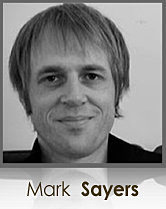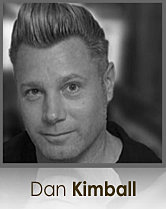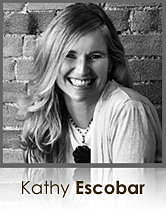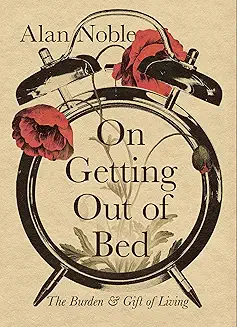
More later about some insights from Sentralized and my hotel room retreat. But for now, a little bit of insight into the drama that resides in the mind of Clint Walker...
Someday, I will have a normal trip. You know, a trip where no mechanical work needs to be done, where nothing is left behind, where I do not lose anything, and am able to simply relax. My trip to Dallas this week, however, was not one of them.
The first day of my trip started out rather smoothly. I made good time while I was driving. I got a Muppets t-shirt at the Loveland Casual Male Big and Tall. I might have even made it a little early....until I ran into a traffic jam about 10 miles north of the tollway.
The tollway, once I got to it, freaked me out. You see, I am a little old school. I am used to a tollway that has toll booths. This one did not. You just drive through and they find your licence plate and bill you. I began to wonder as I drove if there was a sinister plot, or if I was just way behind in my experience of toll roads.
So, I then arrive at the airport parking. And instead of getting a paper ticket to leave in my car the unmanned gate takes my credit card and then tells me to use the same card on the way out when I leave. Apparently it will figure out when I get back.
Running behind because of the traffic jam, and set off kilter with the whole tollway/parking advances in technology I hustle to get through ticketing and get through the gate. I don't get my carry on bags tagged, and I make my way through security, down to the train, and through the airway to A-28. I talk to the people at the gate about getting a refund on part of my tickets, because I paid double for extra space, and that can be refunded if the flight is not full. I set my stuff down. Somehow, at some point, I left one of the bags I was supposed to bring with me. That bag was my CPAP machine.
It is not until I get off the plane in Dallas that I realize my CPAP is not with me. So, despite my frantic maneuverings all week, I have to sleep without assistance. This is a difficult challenge for me. I have lost a lot of weight since I first got diagnosed with my machine. It was my ten year anniversary with my CPAP machine, and I have rarely slept without it.
Being without a CPAP creates two problems. First, I don't sleep as well, which makes me less alert, more anxious, and less able to learn at a learning event. Second, I have an emotional and psychological attachment to my machine. I am convinced that any day without it I am taking my life into my own hands, and could die in my sleep. I get jittery and anxious thinking about sleeping without my CPAP machine. For five days I will have to do without it.
I rented a car from E-Z rental for 5 days, and pay as much in taxes as I did for the car. I learned that I loved the Toyota Camry.
Once I got to hotel, the attendant's first words was, "come talk to us in the morning, and we can get you a new room tomorrow."
"Why?", I asked.
"Most folks don't like to be in the room next to the front desk and vending machines," he said.
So I went and opened the door.to the room. My nose was assaulted with this odor that smelled a little like urine or cleaner, or both. The room was falling apart. Here are a few of the pictures:
While driving home from a meal, I got lost in yet another tech center/industrial park. These places are so creepy. They are big corporate buildings that are ghost towns at night. I am convinced that these places are full of creepy people hiding in bushes, and the evil spirits of the business elite middle management. At any moment there is going to be some guy with a fetish for overweight pastors jump out from behind somewhere and attack my car so he can have his way with me. Gladly I find my way home.
On my way home from Dallas to Denver, our arrival is delayed for nearly two hours as we circle around in the sky seeking to avoid the thunderstorm that is sitting over the city. A baby vomits two rows up, and a gal behind me is having a nervous breakdown because of the turbulence. We eventually get to the ground.
My bags arrive just fine. Thank God!
I go to the airport lost and found. They told me they had found my CPAP machine. As I get to the booth, the lady says she has given away the machine to someone else, and she has his machine. She will mail it to me overnight tomorrow and I will get it Wednesday. GREAT.
So I go and get my car. I get out on the road. And, while answering my phone I miss my turn. So, I get off at the next exit to turn around. Only...I cannot turn around. And, I need gas. So I wander and wander and wander, seeking a gas station and a way back to the freeway. All I find is miles and miles and miles of 300,000-500,0000 in suburban hell. I am lost in suburbs. I hate the suburbs. I keep driving and driving and driving. I am on the verge of a nervous breakdown. I tell myself I am going to run out of gas in the middle of suburban hell where there are only rich, white people who drive hybrids and talk about how smart Glenn Beck is. "NOOOO. Lord, help me," I pray, "I don't want to die out here in the wretched evil suburbs driving and driving and never finding a gas station.
I finally find a shopping center. I am somewhere out in north Broomfield, directly south of Littleton. How did that happen? I fill up the car and watch suburbans and German sedans go by, with an occasional pick up truck. A nice gentleman gets me directions to the freeway.
I drove the rest of way home in a driving rainstorm. Winds were at least 40 m.p.h. and there is standing water on the road. I listened to a book called The President's Club. I got home at 2.am. Got to sleep at 3 a.m., and got up at 7 a.m. with the girls. Eventually I was able to get the back up CPAP to work. Praise God.
I wonder what is in store for me next week

















